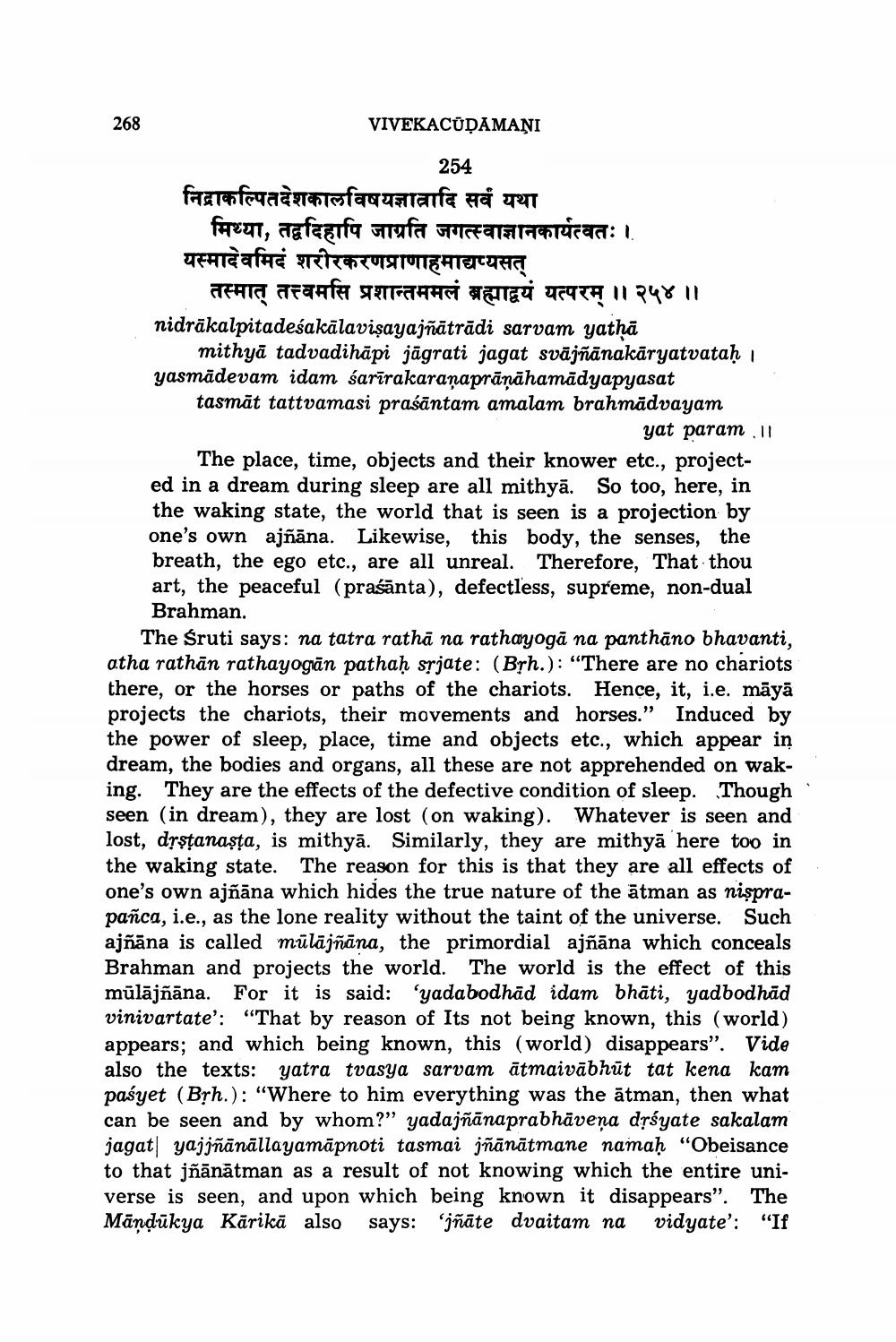________________
268
VIVEKACUDAMANI
254
निद्राकल्पित देशकालविषयज्ञात्त्रादि सर्वं यथा
मिथ्या, तद्वदिहापि जाग्रति जगत्स्वाज्ञानकार्यत्वतः । यस्मादेवमिदं शरीरकरणप्राणाहमाद्यप्यसत्
तस्मात् तत्त्वमसि प्रशान्तममलं ब्रह्माद्वयं यत्परम् ।। २५४ ।। nidräkalpitadeśakālaviṣayajñātrādi sarvam yatḥā
mithya tadvadihāpi jāgrati jagat svājñānakāryatvataḥ | yasmādevam idam sarirakaraṇaprāṇāhamādyapyasat
tasmāt tattvamasi praśāntam amalam brahmadvayam yat param.11
The place, time, objects and their knower etc., projected in a dream during sleep are all mithya. So too, here, in the waking state, the world that is seen is a projection by one's own ajñāna. Likewise, this body, the senses, the breath, the ego etc., are all unreal. Therefore, That thou art, the peaceful (praśānta), defectless, supreme, non-dual Brahman.
The Śruti says: na tatra ratha na rathayogā na panthāno bhavanti, atha rathān rathayogan pathaḥ srjate: (Brh.): "There are no chariots there, or the horses or paths of the chariots. Hence, it, i.e. māyā projects the chariots, their movements and horses." Induced by the power of sleep, place, time and objects etc., which appear in dream, the bodies and organs, all these are not apprehended on waking. They are the effects of the defective condition of sleep. Though seen (in dream), they are lost (on waking). Whatever is seen and lost, dṛṣṭanasta, is mithya. Similarly, they are mithya here too in the waking state. The reason for this is that they are all effects of one's own ajñāna which hides the true nature of the atman as nisprapañca, i.e., as the lone reality without the taint of the universe. Such ajñāna is called mulājñāna, the primordial ajñāna which conceals Brahman and projects the world. The world is the effect of this mūlājñāna. For it is said: 'yadabodhad idam bhāti, yadbodhad vinivartate': "That by reason of Its not being known, this (world) appears; and which being known, this (world) disappears". Vide also the texts: yatra tvasya sarvam ātmaivābhūt tat kena kam pasyet (Brh.): "Where to him everything was the ātman, then what can be seen and by whom?" yadajñānaprabhāveņa dṛśyate sakalam jagat yajjñānāllayamāpnoti tasmai jñānātmane namaḥ "Obeisance to that jñānātman as a result of not knowing which the entire universe is seen, and upon which being known it disappears". The Mandukya Kärikā also says: 'jñāte dvaitam na vidyate': "If




